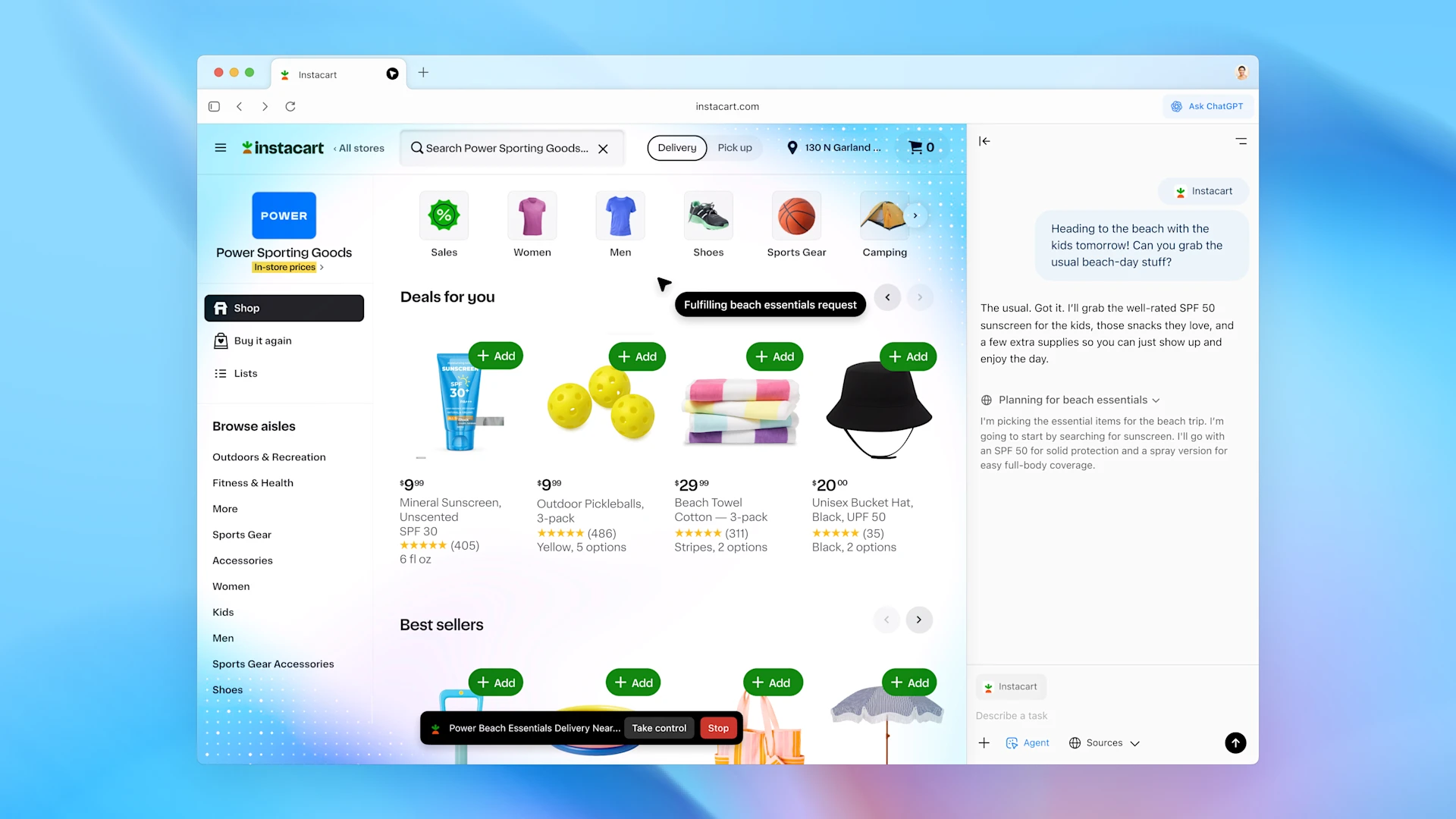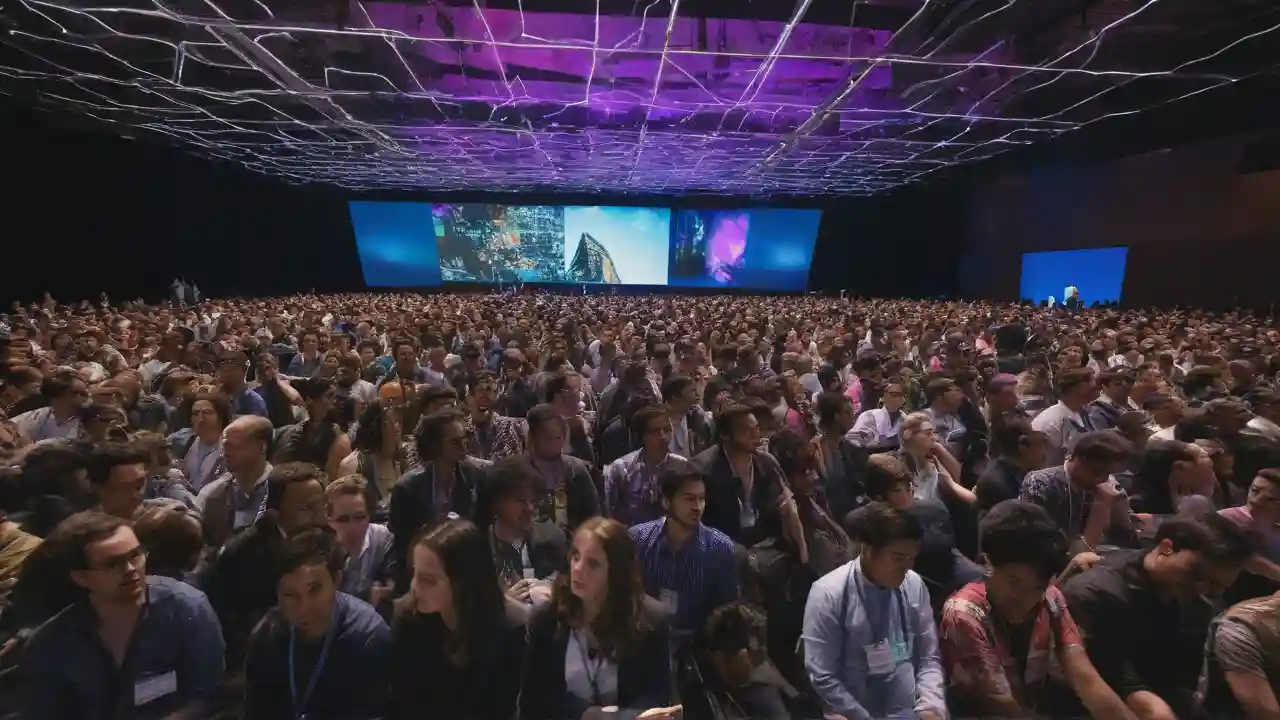The Ghost in the Browser: OpenAI’s Atlas Opens a New Front in the Battle for the Web
SAN FRANCISCO – The internet just shifted under our feet. OpenAI—the company that catapulted generative AI into global fame—has unveiled ChatGPT Atlas, a new kind of web browser infused with artificial intelligence at its core. It’s not simply another tool on your desktop. It’s the latest weapon in an escalating digital war over who controls the web, our data, and ultimately, how we experience the online world.
OpenAI’s glossy marketing campaign paints Atlas as a kind of digital super-assistant that “understands your world” and “does the work for you without ever leaving the page.” One college student, Yogya Kalra, gushed that it transformed the tedious process of juggling screenshots and search queries into a smooth, one-click learning flow.

But peel back that shiny surface, and a more tangled story unfolds. Internal reviews and early user feedback tell of performance hiccups, mounting privacy worries, and a crowded battlefield where tech giants are rushing to plant their AI flags.
Right now, Atlas—available only on macOS—isn’t a finished revolution. It’s a bold prototype, a sketch of a world where your browser doesn’t just show you information but acts on it. That vision comes with enormous potential—and equally enormous risk.
The Promise and the Peril of an AI Co-Pilot
At its heart, Atlas tries to fix one of the web’s oldest frustrations: endless tab-switching and copy-pasting. Its built-in ChatGPT sidebar can “see” the page you’re on. You can ask it to summarize a report, compare prices, or draft an email based on what you’re reading.
The two features drawing the most attention—and the most controversy—are Browser Memories and Agent Mode.
Browser Memories is optional, but powerful. It lets ChatGPT remember the sites you visit and the topics you care about. Imagine asking, “Find the job listings I viewed last week and summarize the hiring trends.” That’s possible because Atlas remembers your journey. Analysts describe it as a “data and memory flywheel”—a self-reinforcing system that makes OpenAI’s models increasingly personal and effective.
But this convenience comes at a cost. The system runs on a user’s digital footprint—their “online soul.” OpenAI says the data stays private, can be deleted anytime, and isn’t used for training unless you opt in. Still, many users aren’t buying it. A leaked engineering review summed it up bluntly: “Skepticism about where data goes and if browsing content trains models.” In an age when digital trust is already fragile, even the hint of hidden tracking sparks alarm.
Agent Mode raises the stakes even higher. Currently available only to paying users, it allows ChatGPT to take real actions—opening tabs, clicking links, filling forms. The company’s demo shows a cheerful example: “Find a recipe, add the ingredients to Instacart, and place the order.”
Sounds convenient, right? But OpenAI admits the risk. The same feature could follow malicious commands buried in a webpage, potentially stealing private data or executing unwanted actions. To prevent disaster, the company blocked access to local files and requires confirmation before sensitive actions—like on banking sites. Still, trusting an invisible assistant to wander through your browser feels a bit like letting a polite ghost move into your house and hoping it never turns mischievous.
The Harsh Reality Behind the Hype
For many users, Atlas’s debut has been a bumpy ride. One internal note called it “extremely sluggish,” comparing its laggy performance unfavorably to Apple’s Safari. That same frustration has spilled onto Reddit and tech forums, where early adopters complain that the supposedly seamless assistant feels clunky and slow.
Then there’s the exclusivity problem. Atlas only runs on macOS for now, leaving Windows and Android users—by far the majority—waiting impatiently. The promise of “coming soon” doesn’t soothe those who feel left out.
Behind the scenes, investors see a deeper strategy. According to one circulating venture capital memo, “Atlas isn’t just a browser with chat—it’s OpenAI’s wedge to control the user’s daily surface area and reduce reliance on third-party platforms.” In other words, this isn’t just about browsing the web faster; it’s about owning the interface where people spend their time.
That’s a big play, and it puts OpenAI head-to-head with some serious competition. Google is weaving its Gemini AI into Chrome. Microsoft has folded its Copilot assistant deep into Edge. Together, those two dominate roughly 84% of the desktop browser market. For Atlas to stand out, it needs to be lightning fast, rock-solid, and undeniably useful. Right now, it’s none of those things.
Adding a twist, some outlets noticed Atlas uses Google for search instead of Microsoft’s Bing—even though Microsoft is one of OpenAI’s biggest partners. It’s a practical move for quality, but one that hints at an awkward future: friends today, fierce rivals tomorrow.
A Choice for Every Internet User
The launch of Atlas marks a fork in the road. One path leads to a world where intelligent agents quietly handle your online chores—reading, planning, and buying on your behalf. The other path clings to a more cautious web, wary of losing privacy, control, and trust.
Right now, Atlas caters to early adopters—the tech-savvy dreamers who crave the future, even if it comes with bugs and risks. The real test will be how many people make Atlas their default browser, how well its agents perform, and—perhaps most tellingly—how many users turn on that persistent “memory” feature.
In the end, the question Atlas raises isn’t just about OpenAI’s ambitions. It’s about ours. Are we ready to hand an AI the keys to our digital lives in exchange for ease and efficiency? The answer will decide who shapes the next era of the internet—and who gets left haunting its history.
